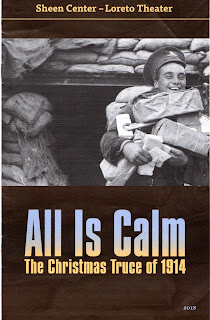"It Was the Best of Years"
"It Was the Worst of Years"
I reviewed around 220 shows this year, distributed among four sites, Theatre’s
Leiter Side , The Broadway Blog,
edited by Matthew Wexler; Theater Pizzazz,
edited by Sandi Durell (with great assistance from J.P. Clarke), and Theater Life, edited by Barry Gordin and Patrick
Christiano. My lists of the year's best and worst are given below.
Many of the shows listed here have nothing to do with the 2018-2019
season, which began in May and ended in April. A number already won awards as
part of the 2017-2018 season. They represent only shows I covered between January
1 and December 31, 2018.
Each show I review is given at least three grades, some
getting as many as four. First there’s the thumbs-up or -down system where
Samoji, as we’ll call him, offers two thumbs up for shows in the 85-100 range,
one thumb up for the 70-84 range, two thumbs neither up nor down for the 50-69
range, one thumb down for the 30-49 range, and two thumbs down for anything
below that. Through the goodness of his heart, Samoji gave only two shows (Molasses
in January and A
Walk with Mr. Heifetz) a two
thumbs-down rating in 2018.
If you look closely at Samoji’s shirt, you’ll see he also
rates shows by a star system, ranging from one for the worst and five for the
best. Thus, two thumbs up gets ***** while two thumbs down gets *.
With one or two exceptions, all shows are also given a numerical
grade when the review appears on Show-Score.com,
where most online reviews are excerpted and numerically graded to provide a
composite score, similar to what Rotten Tomatoes does for movies.
Finally, Theater Life has its own star system for which I
provide another star grade.
The Best of 2018 lists that follows are based on my two thumbs-up
reviews. The Worst of 2018 lists are based on all shows getting either one or two thumbs-down. I’ve added the numerical grades I gave the shows on Show-Score.com and
used those figures to organize the lists from highest to lowest. The total number of shows
graded 90 or above comes to 13. If I were forced to
pick the ten best of those, they’d
be (based on some after-the-fact reconsideration):
(in alphabetical
order)
Hangmen
Hershey Felder as Irving Berlin
Mlima’s Tale
My Fair Lady
Separate and Equal
The Cher Show
The Ferryman
The True
Three Tall Women
Travesties
The lists are organized as follows: New Plays; New Musicals;
Revivals of Plays; Revivals of Musicals.
Some of these may surprise by their variance from other
reviewers’ choices best or worst of the year choices, but that’s what all this
is about.
Best of 2018
New Plays
The Ferryman 95
Mlima’s
Tale 90
The
Damned 90
Hangmen
90
The
True 90
The
Emperor 90
Separate
and Equal 90
Feeding the Dragon 85
Feeding the Dragon 85
Admissions 85
Babette’s Feast 85
Balls 85
The Low Road 85
The Metromaniacs 85
My Life on a Diet 85
The Originalist 85
Mary Page Marlowe 85
Teenage Dick 85
Mike Birbiglia: The New One 85
What the Constitution Means to Me 85
The Thanksgiving Play 85
The Waverly Gallery 85
New Musicals
Hershey Felder as Irving Berlin 90
The Cher Show 90
Girl from the North Country 85
Inner Voices 85
Revivals of Plays
Travesties 95
Three Tall Women 90
The Seafarer 85
Our Lady of 121st Street 85
Hindle Wakes 85
Lobby Hero 85
On Beckett: Exploring the Works of Samuel Beckett 85
Revivals of Musicals
My Fair Lady 90
Fiddler on the Roof 85
Smokey Joe’s Café 85
Worst of 2018
New Plays
The Amateurs 45
The Stone Witch 45
A Walk with Mr. Heifetz 45
Against the Hillside 45
Cardinal 45
Good for Otto 45
Education 45
Amy and the Orphans 45
The Hollower 45
The Gentleman Caller 45
Days to Come 45
Kurt Vonnegut’s Mother Night 45
Hitler’s Tasters 45
Hurricane Party 45
The Property 40
The Undertaking 40
Molasses in January 20
New Musicals
Escape to Margaritaville 45
This Ain’t No Disco 45
R.R.R.E.D.: A Secret Musical 45
Comfort Women 40





























































